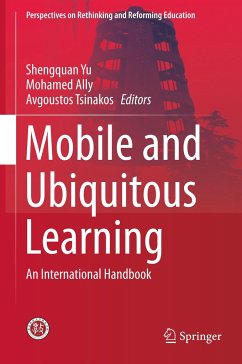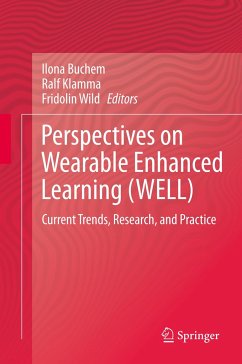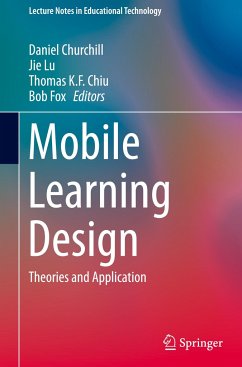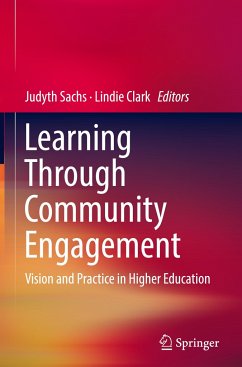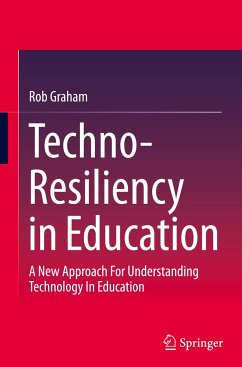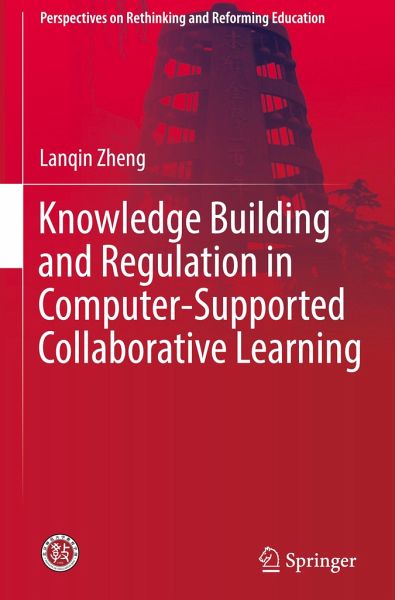
Knowledge Building and Regulation in Computer-Supported Collaborative Learning
Versandkostenfrei!
Versandfertig in 6-10 Tagen
65,99 €
inkl. MwSt.
Weitere Ausgaben:

PAYBACK Punkte
33 °P sammeln!
This book proposes and validates an information flow approach to analyzing knowledge co-construction and predicting group performance in the context of collaborative learning. In addition, it highlights the importance of socially shared regulation in collaborative learning, and illustrates in detail how it can be analyzed and promoted.The book investigates several innovative examples, including: Methodological approaches to studying and analyzing knowledge building and regulation in collaborative learning; Social software tools for capturing the dynamics of knowledge building and regulation in...
This book proposes and validates an information flow approach to analyzing knowledge co-construction and predicting group performance in the context of collaborative learning. In addition, it highlights the importance of socially shared regulation in collaborative learning, and illustrates in detail how it can be analyzed and promoted.
The book investigates several innovative examples, including: Methodological approaches to studying and analyzing knowledge building and regulation in collaborative learning; Social software tools for capturing the dynamics of knowledge building and regulation in collaborative learning; Collective regulatory mechanisms to scaffold socially shared regulation in real-life collaborative learning; and Scripts and interventions to facilitate effective and productive collaborative learning on the basis of several case studies.
The original methodological contributions to the analysis of knowledge buildingand scaffolding socially shared regulation make this an essential read for anyone interested in collaborative learning. This book will also be of interest to a wide audience of researchers, teachers, and students in the field of collaborative learning, as well as the rapidly growing community of people investigating how collaborative learning can be effectively used in education.
The book investigates several innovative examples, including: Methodological approaches to studying and analyzing knowledge building and regulation in collaborative learning; Social software tools for capturing the dynamics of knowledge building and regulation in collaborative learning; Collective regulatory mechanisms to scaffold socially shared regulation in real-life collaborative learning; and Scripts and interventions to facilitate effective and productive collaborative learning on the basis of several case studies.
The original methodological contributions to the analysis of knowledge buildingand scaffolding socially shared regulation make this an essential read for anyone interested in collaborative learning. This book will also be of interest to a wide audience of researchers, teachers, and students in the field of collaborative learning, as well as the rapidly growing community of people investigating how collaborative learning can be effectively used in education.



